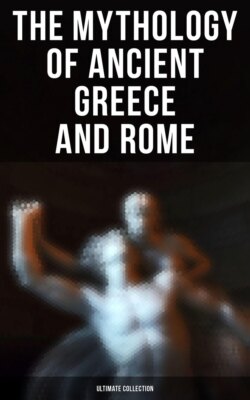Читать книгу The Mythology of Ancient Greece and Rome - Ultimate Collection - Homer - Страница 73
На сайте Литреса книга снята с продажи.
EXPLANATION.
ОглавлениеTo explain this Fable, it must be laid down as a principle that there were originally many Jupiters, and Apollos, and Mercuries, whose intrigues being, in lapse of time, attributed to but one individual, that fact accounts for the great number of children which claimed those respective Gods for their fathers.
Some prince probably, for whom his love of learning had acquired the name of Apollo, falling in love with Daphne, pursued her to the brink of the river Peneus, into which, being accidentally precipitated, she perished in her lover’s sight. Some laurels growing near the spot, perhaps gave rise to the story of her transformation; or possibly the etymology of the word ‘Daphne,’ which in Greek signifies a laurel, was the foundation of the Fable. Pausanias, however, in his Arcadia, gives another version of this story. He says that Leucippus, son of Œnomaus, king of Pisa, falling in love with Daphne, disguised himself in female apparel, and devoted himself to her service. He soon procured her friendship and confidence; but Apollo, who was his rival, having discovered his fraud, one day redoubled the heat of the sun. Daphne and her companions going to bathe, obliged Leucippus to follow their example, on which, having discovered his stratagem, they killed him with the arrows which they carried for the purposes of hunting.
Diodorus Siculus tells us that Daphne was the same with Manto, the daughter of Tiresias, who was banished to Delphi, where she delivered oracles, of the language of which Homer availed himself in the composition of his poems. The inhabitants of Antioch asserted that the adventure here narrated happened in the suburbs of their city, which thence derived its name of Daphne.
